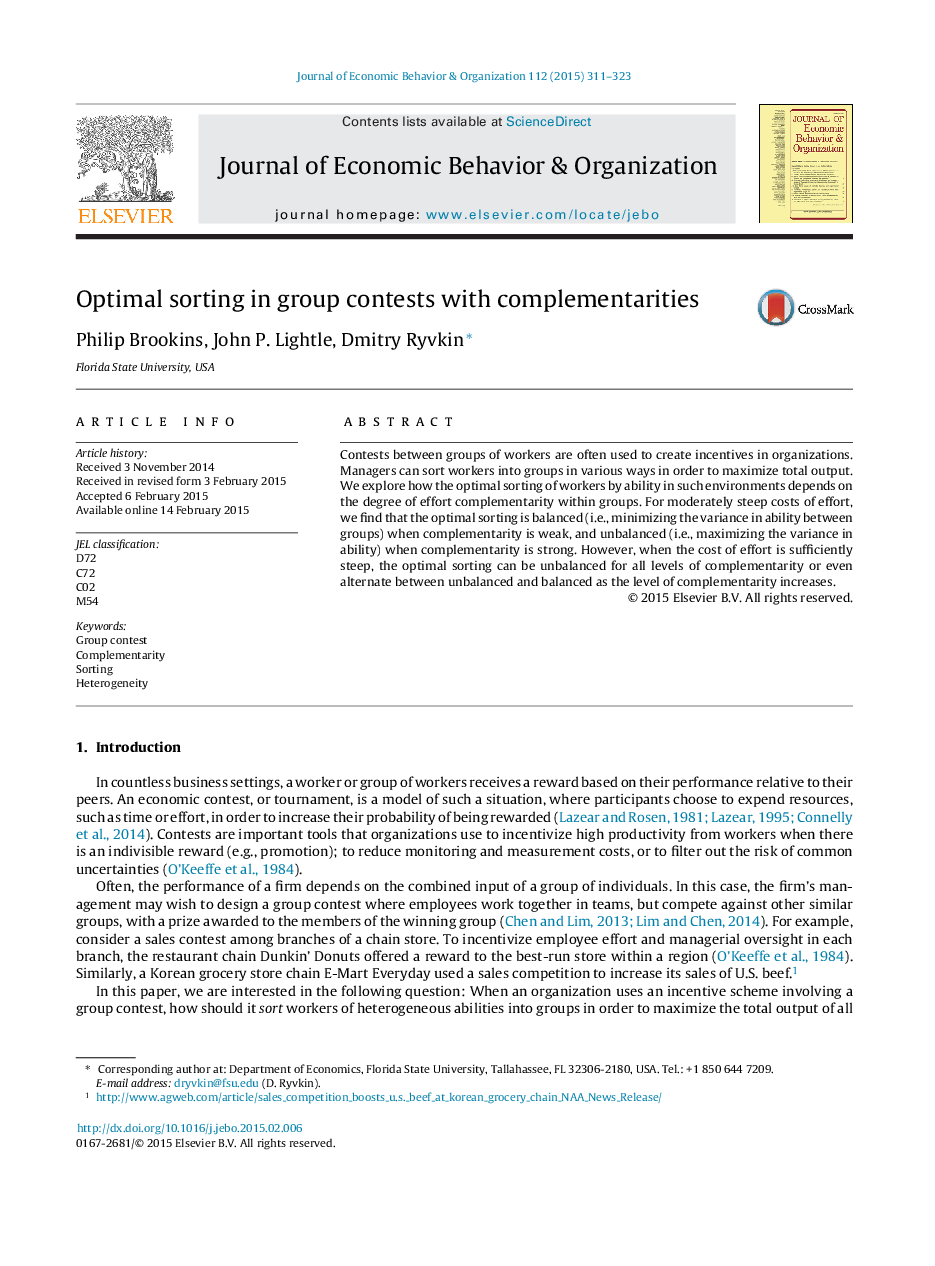| Article ID | Journal | Published Year | Pages | File Type |
|---|---|---|---|---|
| 7243282 | Journal of Economic Behavior & Organization | 2015 | 13 Pages |
Abstract
Contests between groups of workers are often used to create incentives in organizations. Managers can sort workers into groups in various ways in order to maximize total output. We explore how the optimal sorting of workers by ability in such environments depends on the degree of effort complementarity within groups. For moderately steep costs of effort, we find that the optimal sorting is balanced (i.e., minimizing the variance in ability between groups) when complementarity is weak, and unbalanced (i.e., maximizing the variance in ability) when complementarity is strong. However, when the cost of effort is sufficiently steep, the optimal sorting can be unbalanced for all levels of complementarity or even alternate between unbalanced and balanced as the level of complementarity increases.
Related Topics
Social Sciences and Humanities
Economics, Econometrics and Finance
Economics and Econometrics
Authors
Philip Brookins, John P. Lightle, Dmitry Ryvkin,
